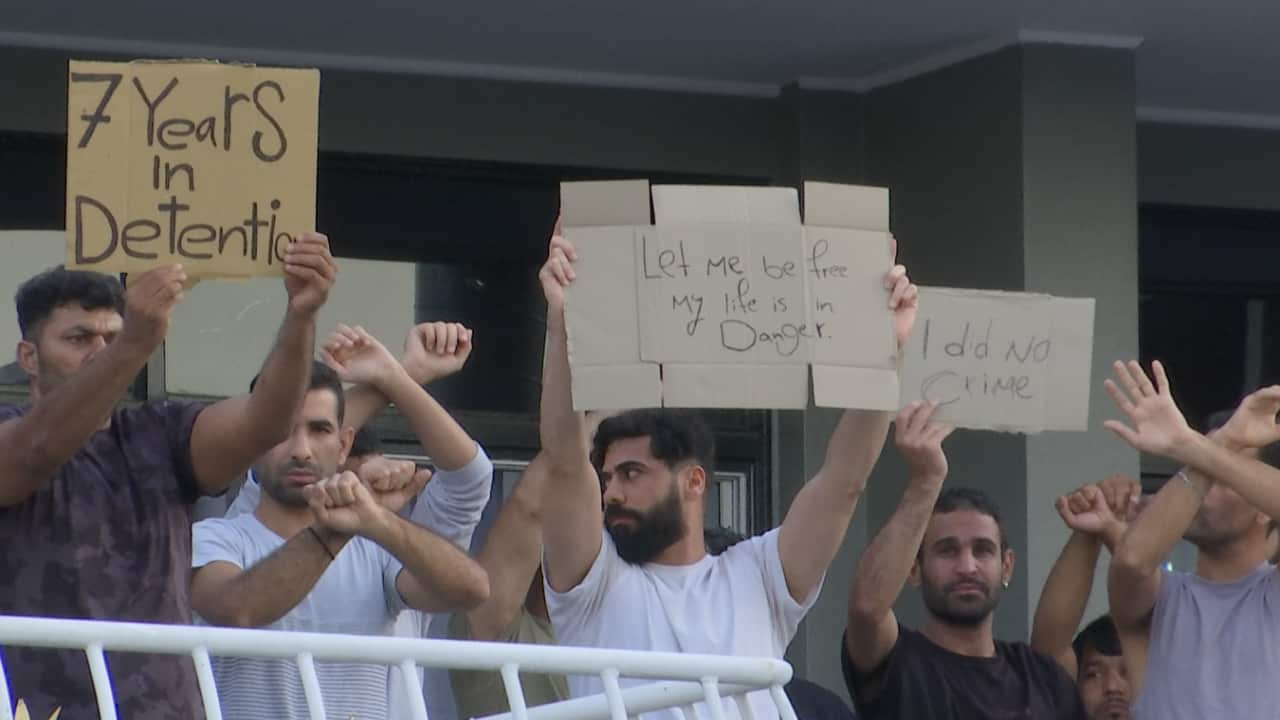Refugees and asylum seekers in Brisbane have begun daily protests urging for their release after doctors and human rights lawyers flagged fears that a repurposed hotel could become a coronavirus infection hotspot.
In response to the COVID-19 pandemic, the UN human rights commissioner this week issued a global call for detainees to be released, where possible, for their safety.
Concern among more than 80 detainees at the Kangaroo Point Central Hotel has been heightened after a guard employed by contractor Serco tested positive last month. In a statement, the Department of Home Affairs said “infection control plans are in place” and “no detainees across the immigration detention network have tested positive to COVID-19.”
In a statement, the Department of Home Affairs said “infection control plans are in place” and “no detainees across the immigration detention network have tested positive to COVID-19.”

Kangaroo Point Central Hotel is being used by Home Affairs as an "alternative place of detention" (APOD). Source: Stefan Armbruster/SBS News
Most of the detainees at Kangaroo Point were medivaced from Australian offshore-processing on Manus in Papua New Guinea and Nauru. Some have been held there for medical treatment for more than six months.
Twelve-hundred medical professionals this week wrote to Home Affairs Minister Peter Dutton and acting Immigration Minister Alan Tudge calling for the release of detainees.
“We’re worried about the detainees themselves, we’re worried about the guards, one guard has already been infected in Brisbane with COVID-19, and we’re worried if there is a terrible outbreak it will overload the health care system,” said Professor David Isaacs, an infectious disease specialist who organised the letter.
Home Affairs said the Serco employee had not had contact with detainees for 11 days prior to testing positive.
“It is quite ironic that first of all the Medivac Bill was brought in against the government’s wishes, and they said we don’t want to listen what medical people have to say about people’s health, then we have a pandemic of COVID-19, they say we have to listen what medical people have to say about people’s health,” Professor Isaacs said.
This week dozens of detainees have been standing on a balcony at the so-called “alternative place of detention”, or APOD, calling for their freedom.
“We did no crime, we did nothing wrong and our lives are in danger,” said one detainee in a video message to SBS News.
“(There are) 120 people in this building, what about the social distancing?”
Detainees say maintaining a safe social distance is difficult in the APOD and have posted videos on social media showing close contact with personnel, queuing for food, cramped conditions on shared balconies and a lack of hand sanitiser in dispensers.
Apart from the more than 80 detainees, several dozen guards, hotel staff, cleaners and other personnel are employed by Home Affairs to secure and maintain the detention facility.
“Staff are coming in and we are dealing with these people every single day, they might have the virus and they don’t know it,” detainee Farhad said in a video message. Home Affairs in a statement said, “a range of measures have been introduced, and are being continually reviewed.”
Home Affairs in a statement said, “a range of measures have been introduced, and are being continually reviewed.”

Kangaroo Point Central Hotel (bottom centre) in Brisbane. Source: Stefan Armbruster/SBS News
“In addition to regular daily cleaning, increased cleaning of communal areas, high traffic areas and common touch points is occurring,” it added.
Employer Serco declined to comment on work conditions at the facility.
“The Department of Home Affairs manages each immigration detention facility and as the service provider we support the management of detainees," Serco said.
A coalition of human rights lawyers this week called on the federal government to ensure the safety of the approximately 1,400 people held immigration detention in Australia.
“The government owes a legal duty to make sure they are safe,” said David Burke of the Human Rights Law Centre.
“The government is breaching these human rights, it needs to act quickly, do the right thing and (ensure) that they be kept in safe housing during this crisis.”
People in Australia must stay at least 1.5 metres away from others and gatherings are limited to two people unless you are with your family or household.
If you believe you may have contracted the virus, call your doctor (don’t visit) or contact the national Coronavirus Health Information Hotline on 1800 020 080. If you are struggling to breathe or experiencing a medical emergency, call 000.
SBS is committed to informing Australia’s diverse communities about the latest COVID-19 developments. News and information is available in 63 languages at .



